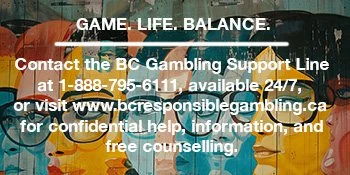Building Worlds You Can Live In: Vancouver's Game Industry in Transition
Vancouver's gaming scene is changing up. There are fewer studios now, but they’ve got more full-time jobs available. This shift is affecting how games are made and opens up chances to create digital worlds that really connect with you.
You live in British Columbia, and video games might be a big part of your life here. You find connection in multiplayer matches or lose yourself in carefully crafted single-player experiences. The industry responsible for creating these digital spaces right in Vancouver is currently undergoing a transformation. You might not see the changes every day, but the way game studios operate in this city is being reshaped.
Fewer Studios, More Pay for You
Alongside the immersive worlds of video games, you encounter diverse online experiences, including the focused play of online casinos that pay real money with slot games. This range of digital fun shows all the different ways people are enjoying interactive stuff these days. It’s pretty key to get a handle on what’s happening in the video game scene.
Recent data from the Entertainment Software Association of Canada (ESAC) gives you a picture of what's going on. Between 2021 and 2024, the number of video game studios located in British Columbia decreased from 158 to 146. That's a 7.6 percent reduction in the number of game companies you could find here.
British Columbia has seen a growth in full-time game industry jobs, increasing from 9,970 in 2021 to 10,930 in 2024, a 9.6 percent rise. The province now accounts for 32 percent of Canada's total game industry workforce of 34,010. While there are fewer employers, available jobs are more likely to be full-time positions.
The Growth of Larger Teams
According to the ESAC report, the reason for this employment increase lies with larger game development studios. These bigger companies are solidifying their operations and hiring more people. They are expanding their teams in Vancouver.
If you are looking for a career in the game industry, particularly with more structure and potentially larger project involvement, these larger studios are becoming central. They often offer more stable employment and comprehensive benefits. You might find yourself working on a major title alongside many other specialists.
Small Studios Face Challenges
While the bigger studios are growing, the report indicates difficulties for smaller game companies. Micro studios, which employ only two to four people, saw a significant decline. Between 2021 and 2024, 35 percent of B.C.'s micro studios closed down or reduced their size, falling from 52 to 34. This reduction in small teams is a trend seen across Canada.
This affects where highly independent game ideas might arise. Some micro studios are crucial initial opportunities for creators that allow more creative control than larger companies might offer. These small teams create little room for unique perspectives outside of more conventional structures.
The Solo Path Forward
Despite the challenges for micro studios, the report notes a notable change in sole proprietorships - studios run by a single person. Their number doubled in B.C., going from 7 to 14 during the same period. That suggests some folks are building their own games.
This uptick in solo creators suggests more developers are directing their projects themselves. This path gives you as a queer creator maximum autonomy to build games that reflect your vision without the outside input or constraints of larger teams.
Worldbuilding Beyond the Story
Thinking about these changes in Vancouver's industry connects to how games build worlds, especially worlds that matter to you. Bo Ruberg, who studies queer themes in games, talks about worldbuilding as more than just character backstories or plot points. It's about the game’s very foundation. How does the game let you interact? What are the invisible rules governing its reality?
Ruberg suggests that technical aspects like interaction design, software simulations, and graphical styles are powerful tools for world creation. These elements show what people think about how things function. If you take a closer look at these technical choices, you can uncover the basic ideas that influence your experience in the game world. This tech side is where you can really create unique worlds.
Crafting New Realities
From a queer perspective, this deeper understanding of worldbuilding is vital. Ruberg proposes that queer worldbuilding involves using these technical game design tools to unsettle the fundamental rules of our everyday world. It means using interaction systems or game physics to build digital spaces that allow for alternate expressions of gender, sexuality, intimacy, and desire.
Game mechanics can really shape relationships and how we move within the game. These design choices aren't just random; they embed values into the game world. By changing these elements, creators can build spaces that challenge your perceptions of what's possible. How might shifts in Vancouver's gaming scene affect your ability to create or discover these unique worlds?
Your Place in the Evolving Scene
So, with Vancouver's game industry seeing growth in large studios and an increase in solo independent work, what does this mean for creating queer worlds? More expansive studios appeal to broader audiences, but decision-making at multiple levels limits creativity. Video games also create worlds for a large group, a small team, or for you alone. In video game storyboarding, you can make your spaces reflect your own experiences and boundaries.









